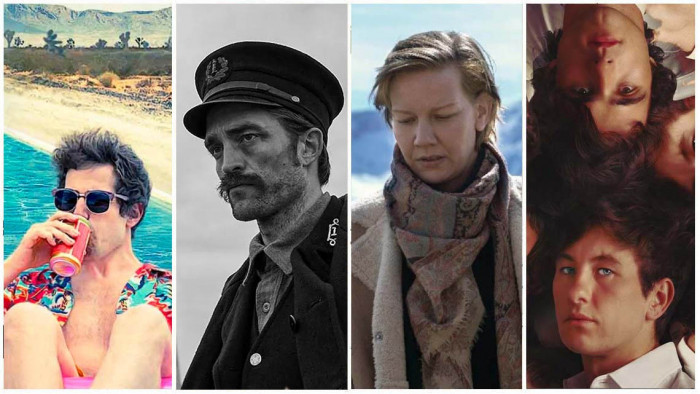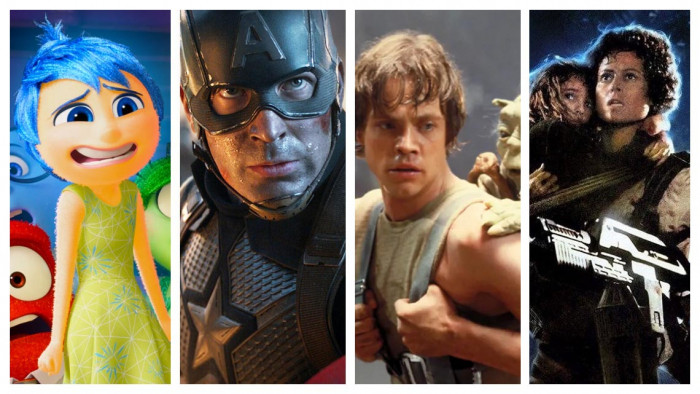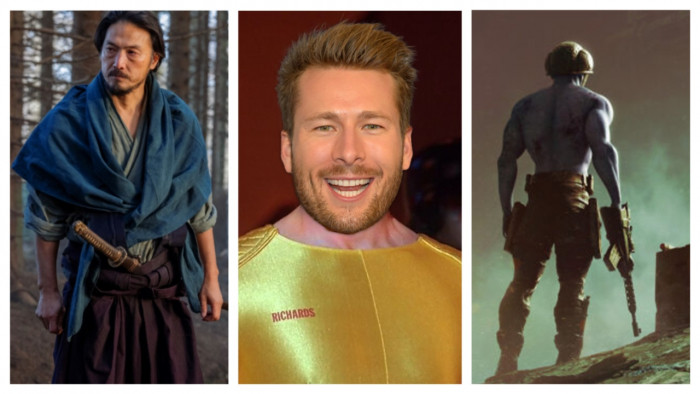We took Noel Clarke and Ashley Walters back to their old stomping grounds to discover their old friendships
And how they made them the men they are today


Noel Clarke is sitting at a picnic table with his best childhood friends – Dave Badillo, Jon Dover, Manfred Ruiz and Dapo Akinkugbe – wondering if he can name all of their children. After a few seconds, he gives up.
“No, I can’t at all,” he concedes.
“I could name Dapo’s. I’m their godfather. But the others’? No.” Then, with a cheeky grin, he adds: “I could rename them.”
The group erupts with heartfelt laughter. It’s no surprise, really; this is the first time they’ve all been together for a decade. While they’ve tried to get together many times over the years, life has always found a way to dump on their plans: a child’s birthday, an overseas work commitment, a back injury. They are, after all, in their forties now.
And yet, ask Noel who his best friends are, and the actor/director doesn’t blink. “I never realised how important these guys were to me until I got much older,” he says. “I don’t have a lot of acting mates because they’re often so pretentious. I’ll pick these guys over any actors, regardless of how often I see them. Because I know that I can call any one of them with a problem and they would come running. And I’d do the same for each of them.”

It’s a lovely spring day in April when we meet in Kensington Memorial Park, near Ladbroke Grove in west London, where the five grew up. Noel’s just returned from filming Sky One’s new buddy-cop drama Bulletproof. Co-starring So Solid Crew star-turned-actor Ashley Walters, it follows the adventures of two young organised-crime detectives in London who, as the synopsis opines, “share a deep, fraternal relationship and are always there for each other”.
This is something Noel and his friends know a thing or two about. They grew up on the council estates that speckle Ladbroke Grove. Noel and Dapo first met aged five because their mums were friends, and this park is where they’d “play out”. It’s where they played football, got into scraps and had their formative encounters with girls.
Noel got to know Jon, Manfred and Dave as wide-eyed teenagers, at nearby Kensington Sports Centre where they all worked as lifeguards into their twenties. “Do you remember when Manfred and Big Jon saved the dead guy’s life in the pool?” asks Noel.
“He coughed up blood after Manfred did mouth to mouth,” chuckles Jon.
“Oh, what was the name of that Portuguese girl who used to come to the pool in a thong, do one lap and lie poolside for ages?” asks Manfred.
“She was there for us, bruv,” offers Noel. “Let’s just say, a lot of girls came for more than just swimming lessons.”
For most of their stories, you definitely had to be there. But memories like these aren’t for outsiders. These memories – the ones every man with old friends has – are the glue that holds friendships together. “Literally every day we would laugh at something,” says Noel. “For me, not having a male living in the house every day, showing me how to do things, these were the guys who formulated my years.”
But as they grew, so did their ambitions, and life intervened. Dave is now a firefighter and Jon’s a fitness instructor, Dapo is a market trader and Manfred makes the fuzz and felt for tennis balls and snooker tables.
“Oh yeah, a tennis ball fuzz maker is what we all dreamed of becoming when we were young,” digs Dave sarcastically when I suggest Manfred’s current job sounds interesting. “It’s every child’s dream to make snooker felt. Oh yeah, because it’s soooo interesting.”
The others laugh heartily and Manfred rolls his eyes. “Yeah?” he snipes back. “How many cats did you rescue from trees last year, Dave? Not all of us are born heroes, bruv.”
“I know I can call any one of them with a problem and they would come running. And I’d do the same for each of them”
Those of a more sensitive nature might construe this as bickering, if not straight-up teasing. After all, it is often said that men hide behind ‘banter’ to avoid getting too close to one another. It’s also said that men’s relationships aren’t as nourishing as women’s and that men are held back by notions of manhood that emphasise toughness and rugged individualism at the expense of personal relationships and their own mental health.
“Men rarely sit around in groups, the way women do, sharing their deepest feelings,” says Geoffrey Greif, a professor at the University of Maryland’s School of Social Work, and author of Buddy System: Understanding Male Friendships. “I come home from my friend’s house to watch a football game and my wife says, ‘Did you know Mike and Mary are having problems?’ I say, ‘No, it never came up.’ Am I supposed to take from her amazed look that somehow my friendship isn’t a good friendship?”
No. One of the glories of male friendship is that it is relatively low maintenance: no Christmas cards, no birthday cards – no apologies, no explanations.
Greif says that to suggest male friendships aren’t as fulfilling as female ones is to misunderstand the rituals and rhythms of male bonding. “If we use women’s paradigm for friendship, we’re making a mistake,” he adds.
“Men might not be as physically or emotionally expressive. But we derive great support from our friendships.”
See more: Watch Noel Clarke and Ashley Walters talk about growing up in London

Something unexpected is happening in the park: Dave and Manfred are crying. The friends have left the picnic table and are standing sombrely by a bench near the flowerbeds. On it are inscribed the words: ‘In Loving Memory of Jessica Urbano Ramirez.’
They huddle together in silence, squeezing each other’s necks. Later, Dave shows me a photo on his iPhone of him in full firefighter gear planting a kiss on Manfred’s cheek. In the picture, Manfred is wearing sunglasses, but they can’t hide the grief etched across his face. “It was taken at a vigil for victims of the Grenfell Tower fire,” says Dave. “Manfred’s 12-year-old niece, Jess, was one of them.”
Then he adds, pointing above the trees, “Look, you can see it from here.” Half a mile away, the pocked and charcoaled carcass of a high-rise tower block rises silently towards the clouds like a vast, demonic shadow.

It turns out Dave was one of the first responders to the tragedy that claimed 71 lives on 14 June last year. “He was up and down that tower bringing victims out all that night,” says Manfred. “Just… no words. He’s a hero.”
“I was looking for Jess,” says Dave, his voice trembling under the weight of what happened that night. “I couldn’t find her.”
Noel puts an arm round him. “We grew up literally in the shadow of Grenfell,” he says. “Almost every memory I have of our friendship is in the shadow of that tower. The day it burned down, we all knew we had to drop everything to come down and help.”
So they did. Maybe Noel and his friends are symbolic of a change in manhood. Hugs are replacing handshakes and “nice one, mates” are giving way to “I love you, mans”. Heterosexual men, who might once have winced at the thought of intimate time with another man, are embracing the power of male bonding.
“There’s no such thing as the perfect friends,” reflects Noel. “Especially me. But true friendship is when people need you, regardless of when you last saw them, you’re there for them.”
Manfred nods in silent gratitude.
We spend the rest of the morning strolling through their old neighbourhood, reliving the old times, and laughing a lot. Almost every corner provides a fresh memory. “That’s the corner shop where we used to buy pick and mix,” says Noel. “That’s where my mum still lives, and where Dapo’s mum lives. And that’s where Isty the crazy cat lady used to chase us barefoot up the street with holly in her hair.”
Once again, they all laugh uproariously. The years have melted away.

Our time is up. We’re meeting Noel’s Bulletproof co-star Ashley Walters and his mates in their hometown of Peckham in south-east London.
Forty-five minutes later, Ashley is waiting for us in the photography studio at which we planned to meet – alone. “I tried to get the three childhood mates I’m still friends with but they were busy,” he says. “There were loads of other guys from the block but a lot of them were gang-affiliated. I had to take myself out of [that] crowd to be who I wanted to be. It was difficult, but I had to do it.”
Then he changes his register as if addressing them directly, “I want to be friends with you, but I can’t go visit you in prison or be on the road no more. Not if I want to work for Sky or the BBC.”
For an illustration of his conundrum, you could look at the jagged six-inch scar across the back of his head. He was 15 when he and some friends got into a fight with two thirty-something men in a corner shop. “They held me down, broke a bottle and stabbed me in the neck,”he recalls. “I would have bled out if my mates hadn’t got me to hospital in time.”
Twenty years – and 52 stitches – later, here we are, walking the same streets in Peckham on which Ashley (mis)spent those formative years. “That’s my granny’s house, where I grew up with her and my mum,” he says, waving towards a modest but well-kept housing estate on the edge of the old canal path. “And that’s the playground we always used to fight over with the traveller kids from up the road. Y’know, kids’ stuff.”
But as he grew older, he slid towards the sharper edge of street life: taking drugs, selling drugs, seeming to embrace a macho culture to which he never felt he belonged. “I was never a gang member,” he says, “but I definitely had friends who were heavily cemented in that world.”
At 17 he joined the upcoming garage collective So Solid Crew under the name Asher D. Their lyrics bragged about guns, crime and street violence. “To be honest, I was talking about what my peers were going through more than I was at that time,” he says. “I was guilty by association a lot of the time.”
“Growing up without a father figure, your dad becomes the local drug dealer, the local gang”

Ashley is as articulate, open and self-reflective a man as you could hope to meet,as comfortable scrutinising his own issues as those of the characters he now plays on screen. “If you’re an inner-city kid growing up without a father figure, your dad becomes the streets, the local drug dealer, the local gang,” he says. “They are your point of reference when it comes to what it means to be a man. A lot of the bad things I did were out of anger, out of not knowing where I came from.”
What his friends at the time didn’t know was that he was leading a double life. He was no slouch at school, got 10 GCSEs and from the age of six spent weekends at the prestigious Sylvia Young Theatre School: “The boys in the ends had no idea I was doing tap and ballet and acting on Saturdays.”
But they did find out. It happened one evening in the green room during a So Solid Crew recording session at BBC Radio 1’s Live Lounge. “When I was seven I had a small part in The Young Indiana Jones,” Ashley says. “We were eating food and suddenly my face comes on the screen and one of the boys said, ‘Hey man, is that you?’
So Solid’s image at the time was the bad boys of south London and it didn’t fit into that at all. They gunned me so hard. It was harsh; one of the most embarrassing moments of my life.”
He then determined never to act again. At 19, he and So Solid scored a No1 hit with ‘21 Seconds’. A year later, he was sentenced to 18 months for gun possession. In many ways, he says, the gun thing was borne out of fear, not fury. “When you come from a place like Peckham and you come out with music, talking about street-related issues, a lot of street people want to test you, to see if [your gangster image] is real.”
Prison, he says, woke him up. “The morning I went to prison, my daughter started walking,” he says [he now has eight children, the eldest of whom is 18]. “It made me determined to change my life, my trajectory, and get back into acting. With acting, you’re playing characters – you don’t have to become them.”
Were those guys really his friends? “Yeah man, they were real friends. I loved them like brothers. It’s sad when I think about them. But I’ve got kids now. Now, my wife is my best friend. And that is a beautiful thing. And I’m 100 per cent focused. My life revolves around making life better for my children, keeping them on the straight and narrow and developing a solid foundation for them.”

We tend to take friendships for granted. In our frenzied lives, as family and employers clamour for our attention, it is too easy to go for years without seeing a friend, or even sparing them a thought. Then, something happens – a 30th birthday, a stag do, a family tragedy – and you pick up where you left off.
Noel and his mates might be a little balder and longer-in-tooth now, but for that morning we spent together, the filmmaker, the firefighter, the market trader, the fitness instructor and the textile manufacturer became the wide-eyed teenage boys they once were. “We’re men,” Noel says. “We don’t need to be in each other’s pockets all the time. That’s not what our friendship is about.”
As for Ashley, he had to leave some friends behind to be who he wanted to be. The paradox is that, in many ways, he wouldn’t be him now, if they weren’t them then. For that, he’s grateful. “As much as I love my job, and I love making new friends, there are always moments in my life where I’m like, ‘I wanna come back,’” he says. “I want to find people, reconnect with people from the past. Being here today has been amazing. For real.”
As we walk back towards the studio, past the library, Peckham Rye station and his childhood home, two young men around Ashley’s age swagger over, a little menacingly. One makes a gun with his fingers and fake-shoots in the air. “Brap, brap,” he shouts. “Asher D is back in the ends.”
Then the other, going in for a fist bump and a bro-hug, says: “We’ve never forgotten you, fam. Welcome home.”
Bulletproof airs on Sky One from Tuesday 15 May
(Photography: Amit & Naroop, other image: Rex)
Latest
Related Reviews and Shortlists


The 10 best war movies of the 21st century








